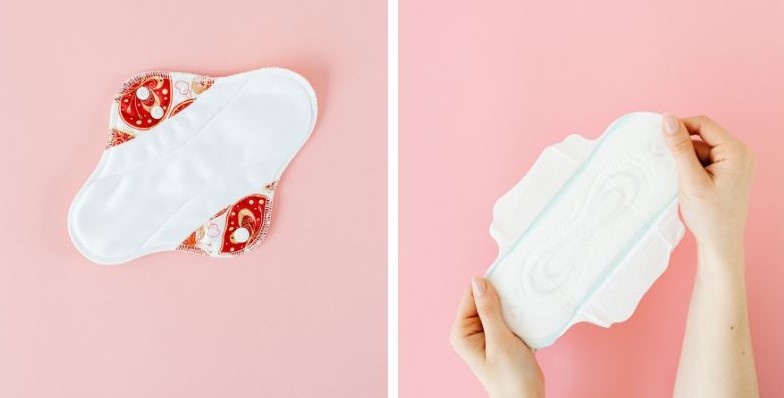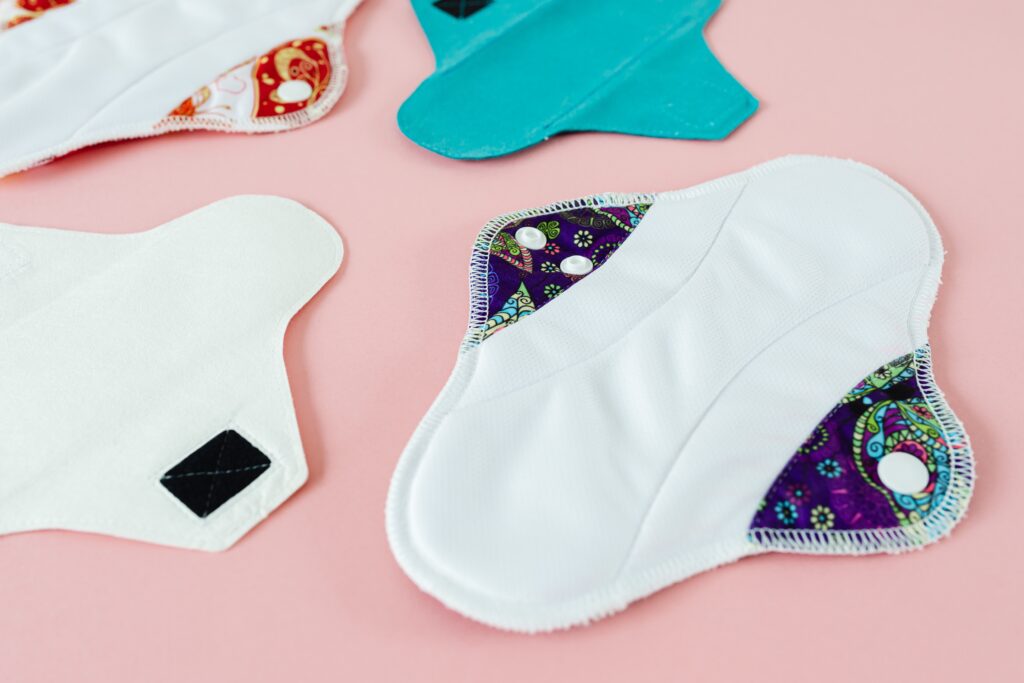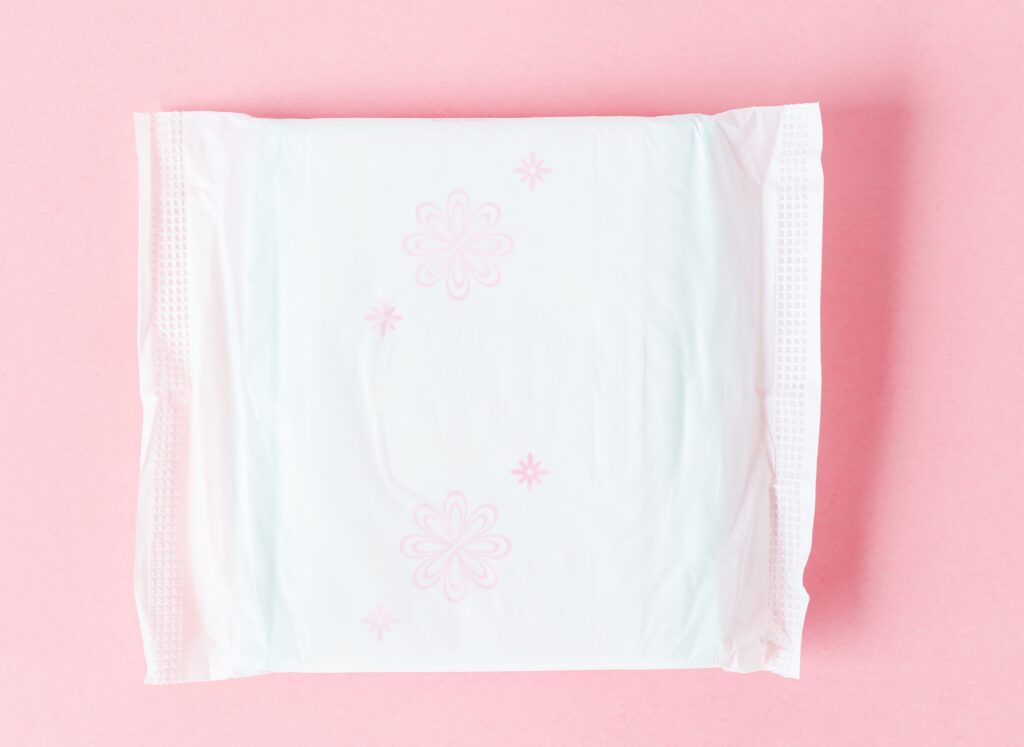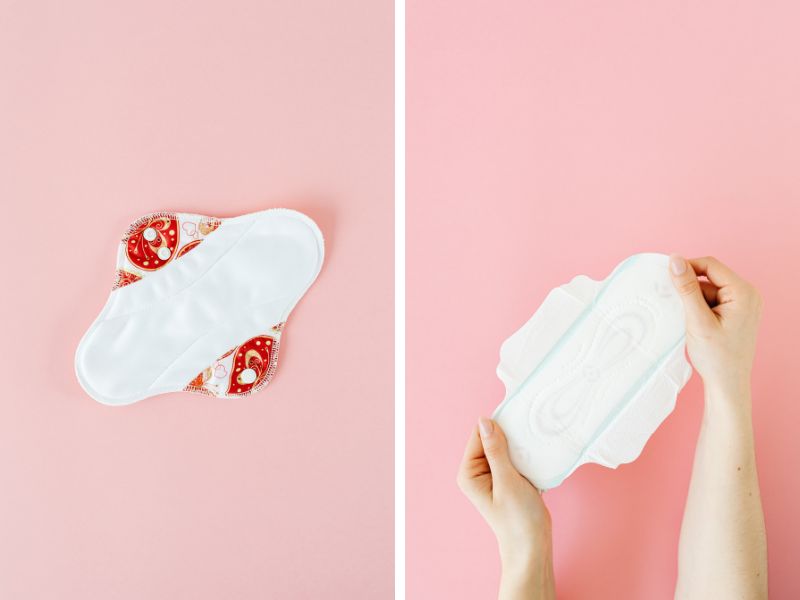Safety and hygiene are important factors during menstruation. We must use safe products; most disposable sanitary pads are harmful to women’s reproductive systems.
BPA, toxic chemicals, fragrances, pesticides, and herbicides present in sanitary pads can cause cancer and infertility and can enter the bloodstream and damage internal organs.
Let us compare the advantages and disadvantages of reusable menstrual pads vs disposable sanitary pads.
Reusable sanitary pads are becoming popular because of their eco-friendly nature, sustainability, and safety. In this article, you will learn which one is best suited for you.
Reusable Menstrual Pads vs Disposables: which one is better for you?
Cloth pads have been acceptable since our grandmothers and elderly women. Nowadays, women rarely use cloth pads because of the hassle of washing, inconvenience during travel, and difficulty changing in public places.
I’m becoming concerned with minimizing the menstrual period’s financial and environmental effects. It can be a matter of practicality. Although purchasing disposables is convenient, there is a disadvantage to it. Let us compare the advantages and disadvantages of reusable menstrual pads vs disposable pads.
1. The environment:
After being thrown away, disposable pads end up in landfills and take hundreds of years to decompose, harming the ecosystem. Disposable pads have harmful chemicals, plastic, and scents that can damage our ecosystem.
2. The health of women:
Plastic, synthetic chemicals, and scents might lead to rashes and itching and even cause toxic shock syndrome.
3. Cost:
It can be difficult for underprivileged women to buy disposable sanitary pads every month. It may cost more compared to cloth pads.

Are cloth pads better than disposable ones?
REUSABLE CLOTH PADS
Reusable menstrual pads are made up of cotton, bamboo, hemp, etc. They are soft and breathable on the skin, and they can be washed and reused many times. It is a one-time investment and lasts for years. Disposable pads need to be purchased every month.

Cloth pads advantages and disadvantages
ADVANTAGES OF REUSABLE CLOTH PADS
1. They are eco-friendly: Cloth pads can be used for longer periods. And they are made of natural plant fibers that can degrade over time after we throw them. They are less harmful to nature and produce less waste compared to disposable pads.
2. They are skin-friendly: Cloth pads have an inner absorbent core made of cotton, hemp, bamboo, and other materials. These materials are highly soft, more breathable, and less likely to cause infections.
3. Save a lot of money: No need to buy every month and spend so much money on menstrual care. Just wash and reuse them again. One cloth pad can last up to 1 to 2 years.
4. They come in various types: Unlike disposables, reusable pads come in different colors, shapes, and sizes, and you can choose them according to your needs.
DISADVANTAGES OF REUSABLE CLOTH PADS
1. Up-front cost: Purchasing cloth pads is a one-time investment. Depending on how often you wash them and how convenient it is for you, you might need to stack them. They are more expensive than disposables. However, over time, they will help you save a ton of cash.
2. Need to wash: You need to become comfortable washing cloth pads. To stop bacteria from growing, they must be carefully washed and sun-dried. Contrary to disposable pads, cloth pads must be cleaned and reused.
3. Cloth pads are not readily available. You won’t find cloth pads in local supermarkets. Make sure you always have them in your bag.
4. Changing during travel:
It is difficult to use during travel, but you can take a wet bag with you and store used pads in it to stop wetness and leaks.
DISPOSABLE PADS

The lower leakproof layer of the disposable pad, which includes the wings, is made of plastic such as polyethylene or polypropylene; synthetic chemicals, chlorine, and perfumes are used. Disposable menstrual products have been linked to cancer, reproductive problems, allergic responses, hormone disruption, toxic shock syndrome, and vaginal infections.
ADVANTAGES OF DISPOSABLE SANITARY PADS
1. They have no leakage tension and are absorbent.
2. The market has them readily available.
3. Use and toss; no cleaning is necessary.
DISADVANTAGES OF DISPOSABLE SANITARY PADS
1. Harmful to the environment: We use disposable pads once a month and discard them. They end up in the ocean, where they harm innocent animals.
2. It may result in infections, allergic reactions, rashes, or toxic shock syndrome.
3. You need to buy every month.
The final words.
It’s an individual choice to choose between reusable menstrual pads and disposables; which one works best for you? I would also recommend other sustainable options, like a menstrual cup and period underwear, which you can try.
How to wash reusable pads
After using cloth pads, they need to be rinsed. Make sure to remove all the menstrual blood. And then soak in detergent for 15 minutes, then wash and sundry.
Are reusable pads leak-proof?
Yes, there is no need to be wary about leaks and stains. They are made up of super-absorbent natural fibers.
Disadvantages of using cloth during periods
1. There is a need for initial investment.
2. Need to wash after use.
3. Cloth pads are not available in local supermarkets.
4. It’s difficult to wash when you’re traveling.
Are reusable pads better than disposable ones?
Reusable pads are good for us and the environment; they are soft and gentle on the skin. Disposable pads cause rashes and allergies.
Reusable Menstrual Pads Vs Disposables which is better?
Reusable menstrual pads are better for us and the environment.
Am Jeenath is an engineer in biotech with a diploma in clinical research. I am the mother of a son. And I love helping people live sustainably. I educate people on sustainable living and share sustainability tips, ideas, brands, and DIYs.


Thanks for sharing. I read many of your blog posts, cool, your blog is very good. https://accounts.binance.info/register?ref=P9L9FQKY
Thank you